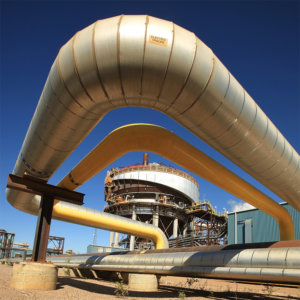New Energy Policies for the World’s Sixth Largest Bank
Crédit Agricole, the sixth largest bank in the world, puts its money where its principles are in its recently released social and environmental policies. In keeping with its stated policy of supporting projects that are “sustainably vitalizing,” the bank’s policies prohibit funding energy projects that rely heavily on unsustainable fuels.
Topics
Leading Sustainable Organizations
Crédit Agricole, the 6th largest bank in the world, recently released their social and environmental policies for the energy sector, including those for oil and gas, shale gas, and coal-fired thermal power. (Two U.S. banks — Bank of America, and JP Morgan Chase — rank 9th and 10th, respectively; we’ll report on what they’re doing later in this series.)
The bank, which is committed to financing the real economy and supporting projects that are “sustainably vitalizing,” includes environmental, social and governance (ESG) criteria in all its financing policies. These rules and principles incorporate what they consider key citizenship issues — including climate change — into the individual analysis of all their funding and investment projects.
The energy sector is particularly important, not only because is it critical to the economy, but above all because the burning of fossil fuels — especially for electricity — is a major contributor to greenhouse gas emissions. Crédit Agricole worked with major international organizations to identify the best practices for the sector, and says these may change as new information and knowledge is gathered and assimilated.
The new policies prohibit funding projects that involve “surface bituminous sands” (also known as tar sands or oil sands); offshore oil drilling in the Arctic; and coal-fired power plants using less advanced or “sub-critical” technology, though this excludes smaller plants in non-OECD countries.
The new guidelines also exclude investment in hydropower plants “where the size of the reservoir is disproportionate to the energy generated” as well as nuclear plants if the technology, operator, or host country is “not deemed satisfactory.”
Crédit Agricole’s decision to withhold investment from offshore drilling in the Arctic (which holds one of the largest estimated untapped oil and gas reserves) comes at a time when other banks — including U.S. Banks — are still seriously considering it, despite the obvious risks of highly visible and costly environmental disasters.
At least in North America, the controversy surrounding oil sands exploitation has been building to a fever pitch over the past few years. (Exports to Europe are fairly minimal.) The environmental costs include significant issues with land, air, and water use and pollution. The research on greenhouse gas emissions from oil sands has been growing, and one

